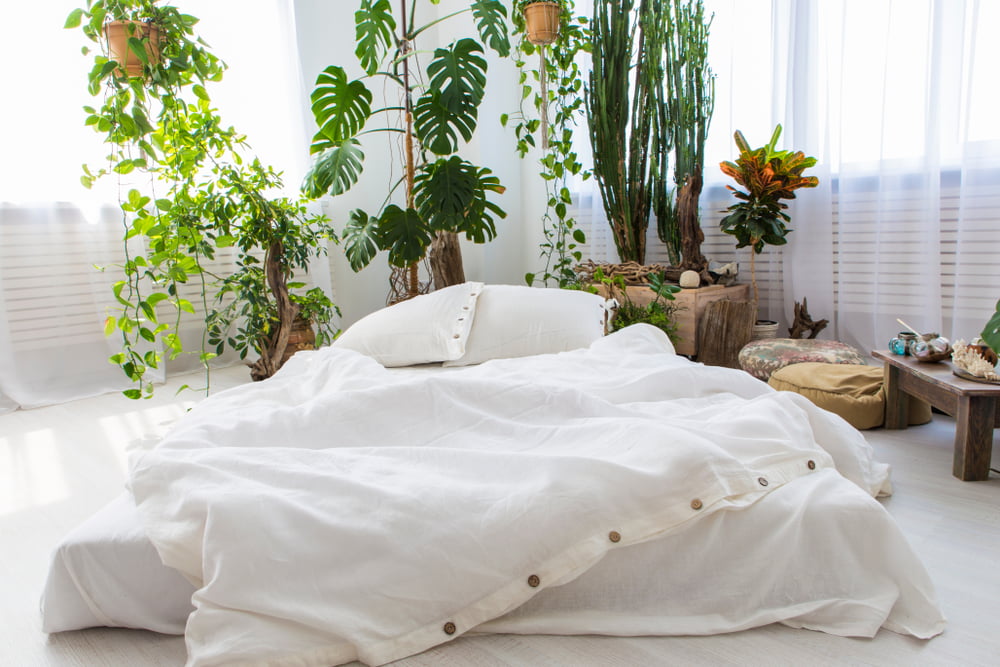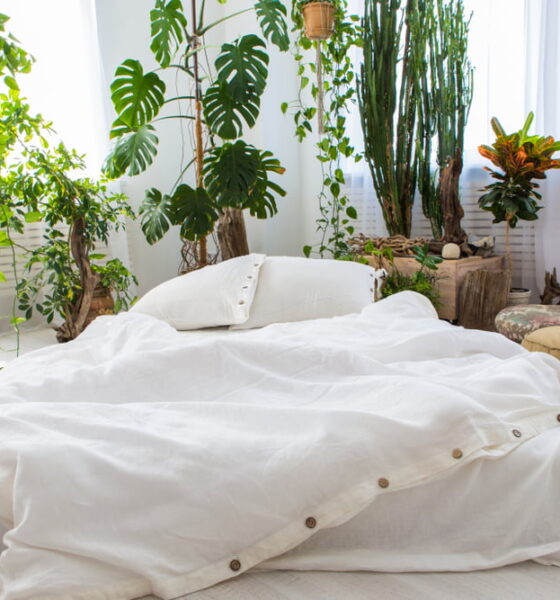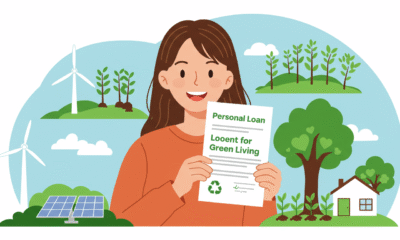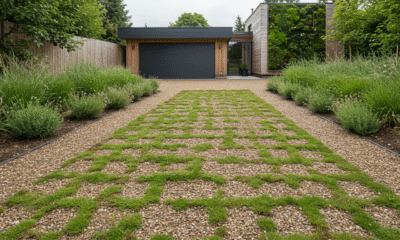

Features
Eco-Friendly Sleep Hacks to Bolster Your Sleep Quality
Sustainability is a growing concern for people all over the world. Seventy-six percent of American households state that they want to live greener lifestyles for their children. Another poll shows that 77% of people want to live greener lifestyles in general.
Unfortunately, despite the growing commitment to green living, many people don’t know what they need to do to achieve these goals. They admittedly have a number of gaps when it comes to their perspective on sustainability. Many are considering investing in renewable energy or hybrid cars, but don’t know what other steps that they can take.
There are a lot of things that you have to take into consideration if you want to live a greener life. One of the issues that many people don’t think about when they are trying to embrace sustainable living is their sleep habits.
Can Eco-Friendly Lifestyle Changes Help Improve Your Sleep?
There are a number of great reasons to live an eco-friendly lifestyle. In addition to helping the planet, green living tips can also improve your health. One of the ways that eco-friendly lifestyles can improve your health is by making it easier to get a good night’s sleep.
Here are some reasons that green living hacks can help with your sleep:
- You will sleep much better if you turn off your electronic devices before going to sleep. This will also help the planet, because you will use less energy. You will also ensure your electronic devices last longer by using them for shorter durations, which helps with the e-waste crisis.
- You will find that most natural sleep aids like melatonin (or better yet not using sleep aids at at all) are better for your sleep habits long-term. Most pharmaceutical sleep aids have a huge, detrimental impact on the environment.
- You will sleep better if you have a room with plants, because they produce higher quality oxygen and remove CO2.
- You will find that most eco-friendly diets are also better for your sleep. For example, red meats and junk food are much worse for the environment than plant-based diets. One study shows that switching to a plant based diet can reduce your agricultural carbon emissions by 61%! They also have a lot more chemicals and saturated fats that are more likely to keep you up at night.
- Reducing alcohol consumption is also better for both your sleep and the planet. Alcohol takes a lot of energy to cool and the alcohol production process is destructive to the planet.
- Reducing the heat is another change that will help your sleep and the planet. You will sleep easier in a cooler room and be more likely to enter deep REM. You will also obviously reduce your carbon footprint, since it takes a lot of energy to generate heat.
There are some clear benefits of living an eco-friendlier lifestyle if you want to sleep better.
Why Eco-Friendly Sleep Hacks Are Great for Your Health
We have established that living a greener lifestyle can improve your sleep. However, it is important to know why you should follow them in the first place. What are the downsides of not getting enough sleep? When you know the answer to this question, you will better appreciate the benefits of green sleeping hacks.
Oversleeping affects your health and can even lead to depression and headaches. You need to know how to control sleep to make the most of the time you get. The National Sleep Foundation has published guidelines for how much sleep people need at different ages.
Oversleeping Can Affect Your Health
Sleep is necessary for our health, but if we sleep too much, it can have negative consequences. It can make us feel exhausted, disoriented, and drained. It can also cause depression. The effects of oversleeping are many, but one of the most common is sleep deprivation.
Sleeping too much can damage the brain. In addition, it can affect your mood and cause thought processes to change. It has also been linked to degenerative diseases and psychological disorders. While oversleeping cannot be reversed, it can be treated with cognitive-enhancing medications and therapies.
The best way to avoid oversleepingis to practice good sleep hygiene. Keeping a regular bedtime and avoiding caffeine and alcohol close to bedtime can help prevent sleep deprivation. Other measures to improve sleep quality include avoiding late-night activities and exercising regularly.
It Can Cause Headaches
Oversleeping can cause headaches because it affects the levels of neurotransmitters in the brain. It’s important to get enough sleep to prevent headaches and set your alarm a few hours earlier if you need to get a restful night’s sleep.
Oversleeping causes your brain to change its internal clock. It triggers a shift in the circadian rhythm, and this causes changes in the way your body processes pain. This changes your sensitivity to pain, which can increase the chance that you will develop a headache in the morning. Sleep disturbances can also increase your chances of getting a migraine.
Another cause of headaches is sleep apnea. While this is not always the cause, snoring can result in headaches in the morning. Sleep apnea is a medical condition that affects the quality of sleep. People with this disorder experience frequent morning headaches because they can’t fall asleep and stay asleep. In addition to headaches, people with sleep apnea have poor posture and may experience dry mouth in the morning.
It Can Reduce Energy
Oversleeping can reduce energy and prevent you from doing your best work during the day. This habit reduces your ability to concentrate and recall information and can lead to fatigue and headaches. It can also worsen existing health conditions, such as depression. Consequently, a regular sleeping schedule is crucial to prevent oversleeping.
Oversleeping can also have a negative impact on your body’s biological clock. Generally, you should aim to get between seven and nine hours of sleep per day. When you sleep for longer than this, you throw off your biological clock and may have to get up earlier than usual. During the day, you may feel drowsy, irritable, or even depressed. If you feel these symptoms, consult your doctor to determine whether you should get more rest or stop oversleeping.
It Can Contribute To Depression
Oversleeping can seriously interfere with your daily activities. In fact, it can even lead to depression. It can keep you from doing the things you love, including socializing and meeting friends. It can also make you feel lonely, which can only fuel your feelings of depression. Oversleeping can also be a symptom of a sleep disorder called hypersomnia. People with this condition are often disoriented and tired during the day.
If you are constantly oversleeping, you should see a doctor. There are many sleep disorders that can affect your ability to function properly during the day. A physician can diagnose oversleeping and help you find a solution that will work for you.
It Can Lead To A Sleep Disorder
Oversleeping can be a sign of many health problems, and it may be an early indicator of an underlying sleep disorder. People who spend 11 hours or more in bed each night are more likely to develop a sleep disorder than those who sleep fewer than six hours. In fact, oversleeping has been linked to an increased risk of heart disease, which makes it a serious health problem.
In some people, oversleeping is caused by a number of reasons, including depression.
Depression tends to make a person sleep more than necessary and causes them to experience low energy levels. In other cases, an individual may be suffering from a condition called narcolepsy, a neurological sleep disorder that causes extreme daytime sleepiness. When this condition is accompanied by other health problems, the condition is known as hypersomnia.
Eco-Friendly Sleep Hacks Are Great for the Planet and Your Health
If you want to help the planet and your health at the same time, then you will want to follow these eco-friendly sleep hacks. You will get more high quality sleep and lower your carbon footprint at the same time.
Studies have shown that oversleeping can have a negative effect on the body, not just physically, but emotionally as well. It can affect your mood, relationships, and even your health. People who are chronically sleep deprived are at a greater risk of developing cardiovascular disease, depression, and obesity.


 Features11 months ago
Features11 months agoEco-Friendly Cryptocurrencies: Sustainable Investment Choices

 Energy11 months ago
Energy11 months agoThe Growing Role of Solar Panels in Ireland’s Energy Future

 Energy10 months ago
Energy10 months agoGrowth of Solar Power in Dublin: A Sustainable Revolution

 Energy10 months ago
Energy10 months agoRenewable Energy Adoption Can Combat Climate Change




























